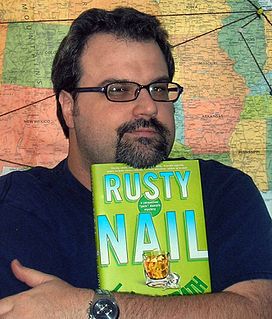A Quote by Tommy McCarthy
Publishing has gone very middlebrow. It's turned its back on legacy of modernism and gone into a humanist mode. When people go through art school they are exposed to the history of the avant-garde, and there's a general understanding that what you're doing as an artist is to a large extent, not just regurgitating that history, but engaging with it. There's this denial of that in the mainstream publishing world.
Related Quotes
The avant-garde has always existed throughout the history of mankind. The good things from the avant-garde last and eventually, after many years, become tradition and people forget they were ever part of the avant-garde. The kitchen is a living discipline, always evolving, and there will always be cutting edge things that over the years, ends up being part of tradition.
More than one branch of the avant-garde, claiming to break with the bourgeois vision and mode of production, remains tied to it in spite of its denials and ex-communications. We are far from having overcome bourgeois thought or practices, despite the socialist "intermission" between the Russian revolution and the collapse of the Berlin wall. The avant-garde has lost its radical nature. On the other hand, "bourgeois theatre" is sometimes subtle enough to flirt with the avant-garde or to make "intelligent boulevard theatre.
I mean, when we did 'Families At War,' on Saturday night prime time, people said we were mainstream then. But it wasn't in the least mainstream. The fact that we got that on BBC1 at that time with those ridiculous things, that's as mainstream as we get. We do what we do and people can think that it's mainstream or avant-garde.
Contemporary art is based on that an artist is supposed to go into art history in the same way as an art historian. When the artist produces something he or she relates to it with the eye of an art historian/critic. I have the feeling that when I am working it is more like working with soap opera or glamour. It is emotional and not art criticism or history of art.






























